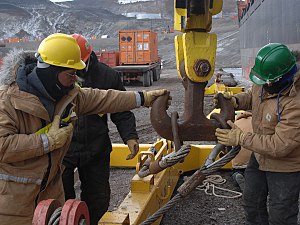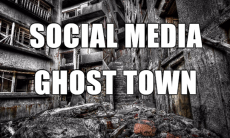As Social Business Platforms make their headway into corporate environments, many people start asking why we are trying to change something that served us so well for many years. After all, face-to-face meetings, emails, telephone and shared files have all proven their value, and are alive and well in most enterprises. The answer may not seem obvious now, but it will be in a few years. Keep reading, and find out why.
In a previous post, I mentioned this quote by David Allen (Getting Things Done) from an interview to the Harvard Business Review magazine (May 2011 issue):
Peter Drucker said that the toughest job for knowledge workers is defining the work. A century ago, 80% of the world made and moved things. You worked as long as you could, and then you slept, and then you got up and worked again. You didn’t have to triage or make executive decisions. It’s harder to be productive today because the work has become much more complex.
The world, of course, changed a lot over the last 100 years. Blue collar workers in North America no longer work 14-hour journeys, and much of that manual labor has been facilitated by automation and technology. We became very efficient in the way we process and move goods, by developing sophisticated heavy-duty machinery, improving motor vehicles, creating better roads, mastering air transportation, and taking inefficiencies out of our supply chain and retail processes, to a point that actual manual labor is now limited to areas where it’s either strictly necessary or not cost efficient to automate. It was a long journey, but worthwhile: by releasing people from mundane tasks, they could focus on things that machines cannot do well, and pursue more meaningful careers and life experiences that don’t follow the “work-eat-work again-sleep-work again” treadmill pattern.
Many of us working in large corporations in the US and Canada are considered to be knowledge workers. We don’t assemble cars, don’t erect houses, don’t manufacture computers: the fruit of our work is often not tangible, and is vaguely defined as knowledge. From that perspective, generically speaking, we are in the business of processing and moving knowledge. And knowledge is another “thing” that underwent major changes over the last 100 years. Knowledge today is much more complex, rich and copious than it was even merely 10 or 20 years ago. However, because knowledge does not have a physical manifestation, we don’t have much awareness about whether or not it is being handled efficiently.
A new car parked at a plant for too long waiting for parts, or a milk carton collecting dust on a grocery store’s shelf are quickly flagged and taken care of. Likewise, physical goods benefit from a well optimized market place: several mechanisms ensure supply and demand are aligned. There’s also an argument to be made that in the consumer Internet, knowledge is also handled efficiently: sites like WordPress, Google, Wikipedia, Facebook, Twitter, Quora and Pinterest provide magnificent mechanisms to capture, filter/curate and distribute knowledge efficiently.
On the other side, knowledge in large corporations is, for its most part, handled the same way it was 10 years ago: via meetings, telephone calls, email, and shared files. Those communication vehicles are appropriate for peer-to-peer handling and distribution of small amounts of information, but are stretched beyond their limits when dealing with high-volume, inter-connected, unstructured information that needs to be made available and processed quickly in competitive and dynamic enterprise environments. It’s like being in the kitchen and trying to cook a multi-course meal for a large wedding using just a fork and your bare hands.
Social communication and collaboration tools like blogs, wikis, status update walls, activity streams, social bookmarking, digital curation, socially influenced search algorithms, discussion forums and social networking services came about in the consumer space as a response to a problem that in hindsight seems obvious now: traditional tools could not scale to manage the volume, the complexity and the speed of new information being generated. We had to go beyond our deterministic systems and start complementing them with probabilistic systems in order to survive. That’s exactly what happened when Wikipedia, Google and Facebook won the battle for online attention over Encyclopedia Brittannica, the original Yahoo! Search and Geocities communities. Similarly, a change of the guard in dominant communication patterns is happening in the corporate environment. Staying behind is probably not an option for most modern organizations: if everybody around you start moving information more efficiently and you don’t, you will end up like the blue-collar workers from a century ago: working 14-hours journeys trying to process all your workload using just your bare hands. And perhaps a fork.






